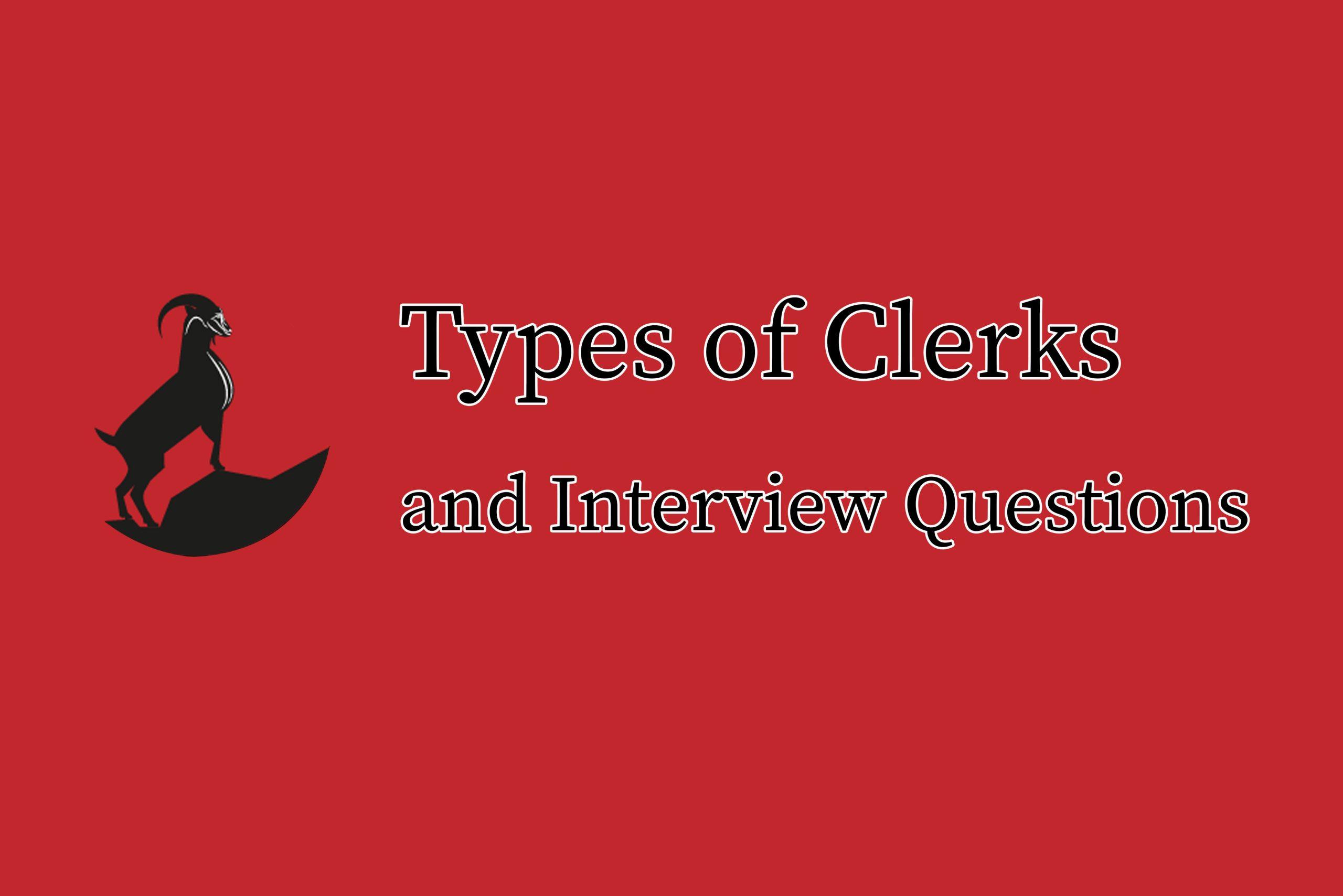
Introduction of Clerks
Clerks are the most important part of any business, completing multiple ranges of organizational and administrative tasks that keep operations running accurately and easily.
Types of Clerks
There are multiple types of clerks. All of them have their own specific tasks and responsibilities. The following are the common types of clerks:
- Accounting Clerks: Handles basic accounting tasks including data input, invoice processing, and financial record keeping, and may assist with payroll and budgeting.
- Legal Clerks: Help lawyers and legal teams with administrative duties such as preparing legal documents, managing case files, and conducting legal research.
- Human Resources Clerks: Help the HR department with daily tasks such as job postings, interview scheduling, employee paperwork processing, and record keeping.
- Customer Service Clerks: Help customers with inquiries, problems, and orders. Maintain customer records and track interactions.
- Administrative Clerks: Provide administrative assistance to a company or department including answering calls, scheduling appointments, managing files, and performing data entry tasks.
Roles and Responsibilities
Other than the specific role of clerks they also have some common responsibilities:
- Managing office work and documentation
- Organizing files and records
- Entering data into computer systems
- Processing invoices and payments
- Addressing client inquiries and complaints.
- Arranging conferences and appointments
- Maintaining inventory and supplies
Skills and Qualities
Being a clerk isn’t easy, there are some skills and qualities required that are important for them.
Following are:
- Focus on detail: Clerks need to be highly accurate while entering data, managing records, and maintaining paperwork.
- Organizing abilities: Clerks need to be capable of managing several duties at once while keeping track of deadlines and priorities.
- Communication capabilities: Effective communication with clients, coworkers, and other stakeholders is a requirement for clerks.
- Computer proficiency: Computer programs including Microsoft Office, accountancy programs, and customer relationship management (CRM) tools must be used by clerks with proficiency.
- Managing time: To meet deadlines and finish jobs quickly, clerks need to be able to manage their time well.
If you are seeking work, simply click on the link (https://yabakri.com/jobs/.) and you will be presented with an endless number of options.
Interviewer expectations
However, generally speaking, an interviewer might seek for the following qualities:
- Devote focus on minutiae: When processing enormous amounts of data, it is critical to pay special attention to minutiae. Clerks must be meticulous and conscientious in their work.
- Time managing: It is imperative for clerks to prioritize tasks and effectively manage their time
- Communication abilities: Clerks may need to engage with clients or coworkers, thus strong written and verbal communication abilities are crucial.
- Adaptability: Clerks may need to pick up new procedures or systems fast, so it’s critical to be flexible and open to change.
- Dependability: Employers need employees who can be relied upon to finish projects on schedule.
Interview Questions
- Introduce yourself.
Answer: An opportunity to exhibit your applicable skills and expertise in this field. Begin your introduction by outlining your education and experience in this sector. Emphasize your qualifications, talents, and experience to showcase your suitability for this position.
- Why are you interested in this position?
Answer: Show your excitement for the job and company by emphasizing what aspects of the role appeal to you, such as utilizing your skills, collaborating with a fantastic team, or making a valuable contribution to a project. (An excellent opportunity to show your enthusiasm.)
- What are your greatest strengths?
Answer: Select your relevant strengths for the role and explain how you can help the firm. Strong communication abilities, meticulousness, problem-solving skills, and leadership qualities are a few examples.
- What are your weaknesses?
Answer: Ought to acknowledge your weaknesses and demonstrate that you’re actively attempting to improve them. For example, you may explain that you have a habit of taking on too much work at once but are attempting to improve your job prioritization.

